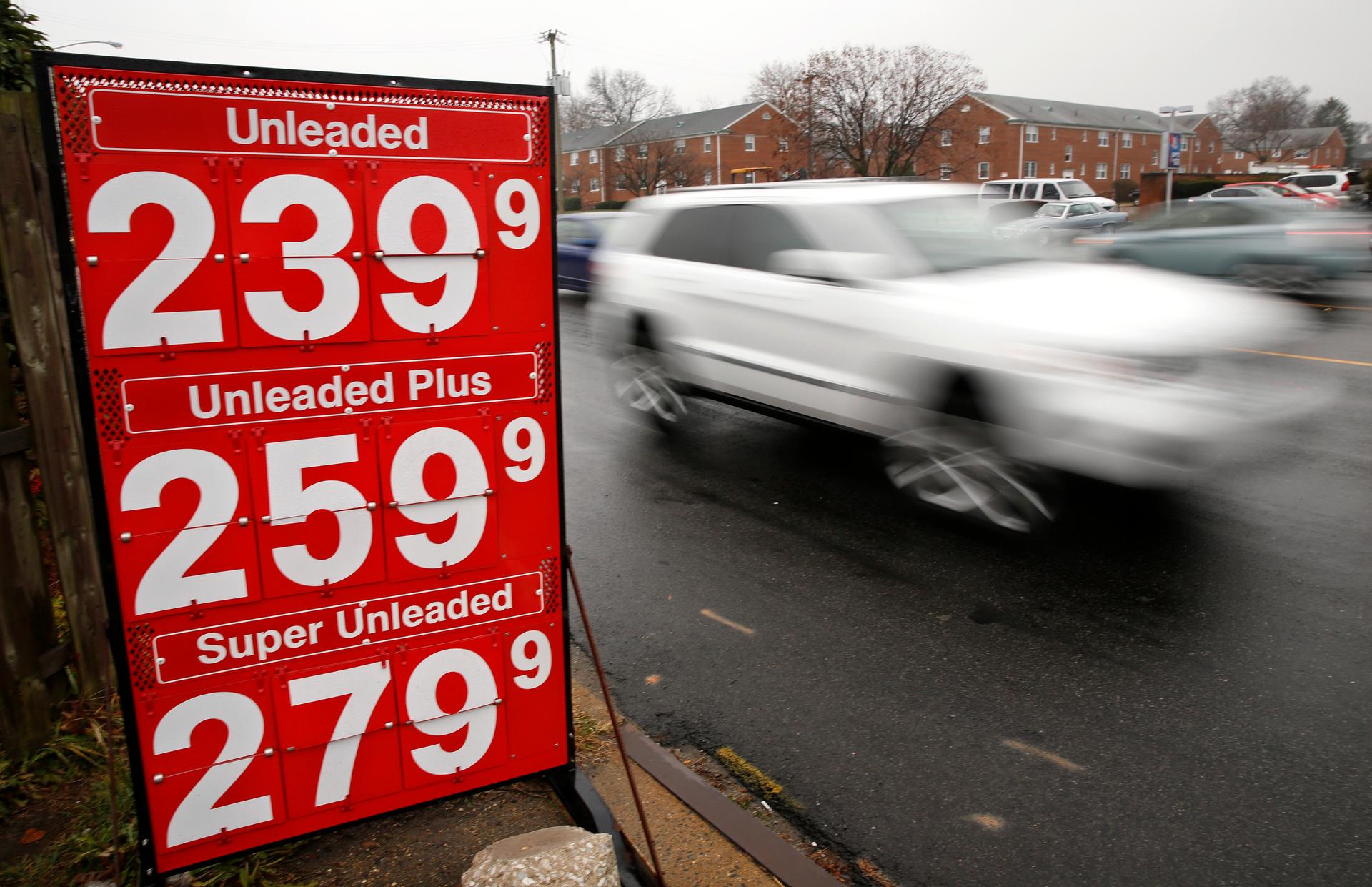Automakers are pushing to reverse fuel efficiency gains
As fuel prices have fallen, US automakers' commitment to raising fuel efficiency standards has fallen, as well. Now, they are asking the EPA to reverse its agreement with the industry.
Shortly after Scott Pruitt was sworn in as the new EPA administrator, the Alliance of Automobile Manufacturers sent him a letter requesting that the agency re-examine new fuel economy standards set to go into effect in 2025. The letter alleges the rules would lead to extreme layoffs and added expenses in the domestic auto industry.
Dan Becker of the Safe Climate Campaign disagrees. He believes the ambitious mileage requirements are key for US goals under the Paris climate agreement and that weakening them would cost American consumers, while boosting short-term industry profits.
“These are standards that the auto industry, environmentalists and the Obama administration negotiated for two years,” Becker says. “We all agreed that these were reasonable standards at the time. The auto companies signed letters of commitment saying that they wouldn't challenge the standards, except during a midterm review.”
The standards require that the average vehicle in 2025 get over 50 miles to the gallon. This is achieved, Becker explains, by putting better technology on vehicles — improving engines, transmissions, aerodynamics and tires.
“The industry can meet these standards without making any electric cars and only a small number of hybrids, as long as they incorporate better technology on their conventional vehicles, and they've begun to do that. They need to continue,” Becker says. "The industry doesn’t specify exactly how much they want the standards rolled back. They just say that they want the procedure undone that finalized the standards, and then they'll go from there."
In their letter, the Alliance of Automobile Manufacturers claims the EPA "abrogated its commitment to a robust midterm evaluation." The procedure they're objecting to is a side agreement to the main agreement signed in 2012, Becker explains. The auto companies insisted on a “re-opener provision,” a midterm review to re-evaluate whether the standards were properly set in 2012. The government just finished that assessment.
“They spent $30 million over a couple years, taking apart vehicles, looking at each component of the engines and the transmissions, trying to figure out what would it cost the auto companies to make these vehicles more efficient,” he explains. “In the evaluation, they concluded that there was ample technology to meet the standards; that the technology worked and it was cost-effective — in fact, more cost-effective than the administration had estimated in 2012, when they promulgated the standards — and the industry had, in fact, become extremely profitable and was very successful selling these vehicles.”
The industry, on the other hand, claims that complying with the fuel economy standards would cause the loss of more than 1 million American jobs. Becker finds this claim puzzling because fewer than a million people currently work at Ford, GM and Chrysler manufacturing vehicles.
“The auto industry [as a whole] has put about 700,000 people to work since these standards started being implemented,” Becker says. “That’s because these standards require more technology [and] more time from workers assembling them. The cost of that is incorporated into the vehicle…[but] the savings at the gas pump more than make up for the better technology that they're buying.”
More importantly, Becker says, if the Obama EPA standards are implemented, they will “save 12 billion barrels of oil, eliminate 6 billion metric tons of carbon dioxide pollution and save consumers over $1 trillion at the gas pump over the life of the program. That's a lot,” Becker says. “That's the biggest single step any nation has ever taken on cutting global warming pollution.”
Even though American consumers stand to save huge amounts at the gas pump by driving more fuel-efficient cars, their preference for trucks and SUVs remains an obstacle to change: Automakers make a lot of money selling these vehicles.
“They're using antiquated technology that doesn't cost very much compared to more advanced car technology. They can offer a premium price and Americans seem to want to buy them,” Becker says. “Definitely, the auto companies are taking advantage of the fact that gas prices are currently low.”
But, what about, “It's not just your car, it's your freedom,” as one advertising line used to go?
“We're not talking about restricting people's choices. We're saying that the auto companies need to add better technology to vehicles to make them go further on a gallon of gas, whether it's a hybrid or a Hummer,” Becker says. “All I urge is that the industry be more responsible in making vehicles with better technology so that when people buy whatever they buy, it pollutes a lot less.”
The Alliance of Automobile Manufacturers declined to comment for this story.
This article is based on an interview that aired on PRI’s Living on Earth with Steve Curwood.
